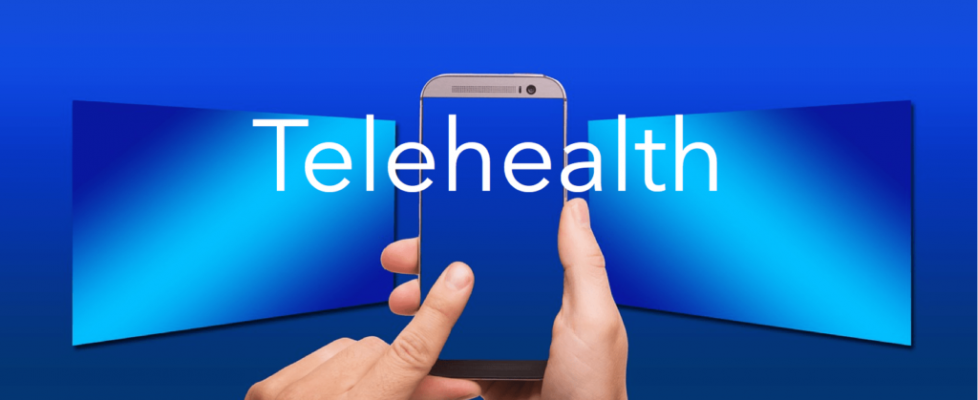Telehealth takes off during pandemic
Heights resident Dr. Diane N. Roche, a licensed psychologist and clinical director at Roche + Associates, said her practice already had a protected online platform which in addition to managing medical records and appointment scheduling, offered secure video therapy sessions.
But the video component was not often used.
“For a handful of young adults, that was their preference,” Roche said.
With the social distancing mandated by government officials on account of the COVID-19 pandemic, however, telehealth technology is the only way that Roche + Associates is currently offering therapy to the busy professionals it serves, except in cases of emergency.
The demand for telehealth services is on the rise, according to a recent survey from customer experience IT vendor Sykes that found two-thirds of respondents are now willing to try virtual care. And in March, the U.S. government set aside many of its restrictions on telehealth. It also said it would relax enforcement on elements of the health privacy law, known as HIPAA, which oversees providers seeking to deliver care remotely.
For Houston-based Legacy Community Health, a full-service, federally qualified health center with 12 stand-alone clinics, including Northline and Montrose locations, the government’s move opened the way for two new telehealth/telemedicine programs that are based on service lines. Legacy began offering virtual therapy for both adults and children three weeks ago, and a virtual pediatric clinic opened last week.
While telehealth was also a service that Legacy provided on a small scale before COVID-19, primarily for behavioral health virtual clinic visits, it now makes up a large part of its current appointments.
Dr. Jeanette Valdivieso, Legacy’s chief operating officer, said that in a typical day, they see a total of 2,600 patients at all of their clinics. While those in-person appointments are down by at least half, they’ve “seen” 3,500 clients in their behavioral health clinic and a few hundred in the pediatric clinic during the last two weeks. This also includes their Spanish-speaking clients.
“It’s new for the parents and the kids,” Valdivieso said. “We had to have extra support, but the kids have an easier time getting going.”
Roche said she has been pleasantly surprised with the success of telehealth therapy, even with her older clients, but allows that she has to work harder to maintain the human connection during virtual sessions. Roche is often more taxed at the end of a session than she is during an in-person visit.
“Brittany Baker, (a licensed clinical social woker), has been providing telehealth services since the time of her training, but I was practicing a long time before telehealth was an option,” Roche said of her associate. “So for her, it’s easier.”
How it works
Heights Dermatology CEO Daniel Salvato said his organization, which consists of nine clinical locations, is using telemedicine to serve existing patients and for the more urgent evaluation of those concerned about melanoma and other worrisome skin lesions.
Patients can visit their website at www.heightsskin.com and access the Telemedicine Login to select a series of rotating providers and then go through the screening process. The appointment happens over video chat with pictures sent through the HIPAA-compliant platform.
“It’s been one tool in our tool chest,” Salvato said. “We’ve used more than one (platform) over the years.”
Salvato said while telehealth services could not sustain the clinic full-time, it is a particularly useful tool now for clients in rural areas like Gonzales and Columbus. The dermatologists normally visit them monthly.
Valdivieso said Legacy’s pediatric service uses a Zoom platform specifically geared toward health care, and patients see either a nurse practitioner or a pediatrician depending on the type of appointment made.
“It’s a collaborative process,” Valdivieso said of the appointment itself, in which the patient and their caregiver use the technology on their device to provide needed data to the medical professional. “It keeps them out of the (physical) waiting room.”
For students at YES Prep and KIPP schools in Houston, Legacy’s clinic allows them online access to their school-based healthcare givers, employed by Legacy, that they used to see at school.
“This is open to the kids and to all their friends,” Valdivieso said.
One possible downside Roche sees is that although the need for mental health services is probably greater during a pandemic, some people might be more willing to put off initiating a virtual appointment.
“When every single thing about people’s lives change, it is completely overwhelming and they are less likely to reach out for other services,” Roche said.
To be a support to healthcare workers, Roche + Associates is offering a free consultation and a discount on subsequent therapy services.
“They have every possible stress (and) are unlikely to reach out,” Roche said, “even though they’d benefit from a completely confidential place to dump all of (the anxiety).”
What’s next?
Salvato said he hopes telemedicine becomes a mainstay.
“I think we are all looking forward to getting back to a new normal,” Salvato said. “But (telemedicine) is one of those positive pieces of technology that will help redefine how we approach care in the modern world and how we provide a higher quality of care.”

